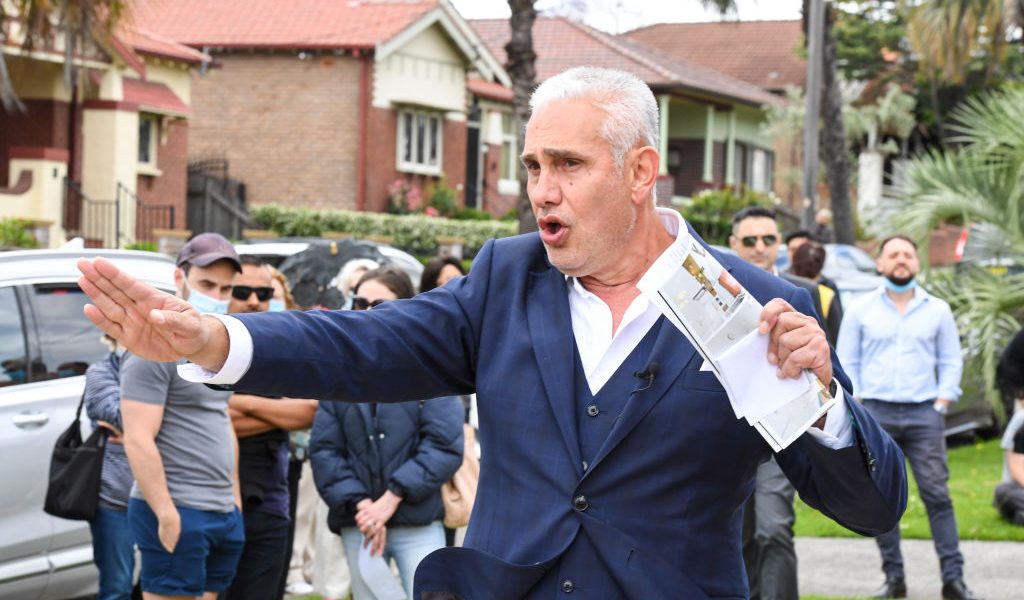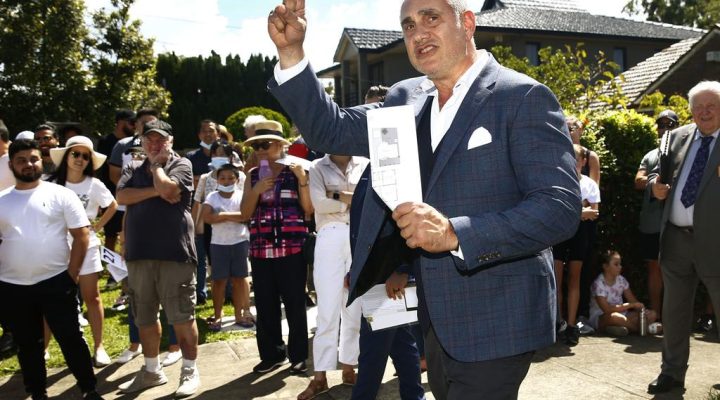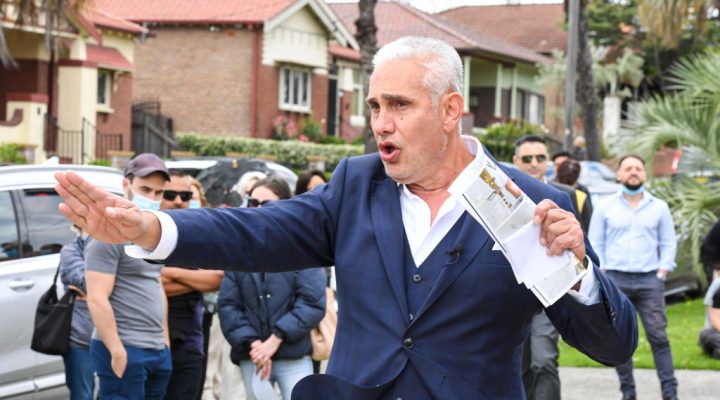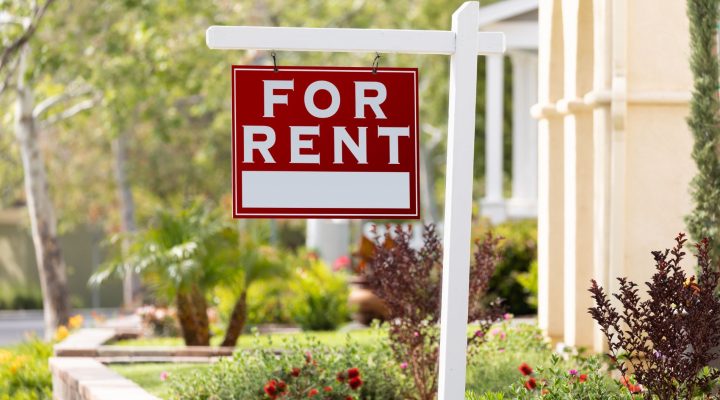What is an Auction?
A real estate Auction is the process of buying and selling property by offering it to bidders at a forum conducted by a licensed auctioneer. The property will be sold to the bidder who makes the highest offer, if it is more than the ‘reserve price’. The aim of the Auction is to help the owner of the property sell their property sooner.
Selling by Auction is an accepted real estate practice, and if you are considering buying property through an auction, this document is designed to help you understand the process of buying a property which has been listed for Auction.
Why are properties Listed for Auction?
A Property seller who is motivated to sell and wants to meet the market now, who either needs to sell ASAP (personal reasons), or there will be strong demand for the property due to the property’s location and the lack of available similar properties should go to Auction. Either way, there will be demand for the property due to the Owner’s needs to sell ASAP, or because of high buyer activity and the lack of available similar properties. If you see a property listed for Auction and you like the property, pay attention and be prepared, as the Seller is motivated to sell.
Price/Price Range/Price Guide
The Legislation regarding Price, Price Range and Price Guides for properties listed for Auction is different in all States of Australia. In Queensland, the Listing Agent/Office are legally prevented from discussing price, a price range or a price guide. It is the Buyer’s responsibility to research recent property sales to establish their own opinion on price. Personally, I believe that this is the best policy for Auctions for the following reasons:
- You ask the Agent for a price range for a property which is going to auction in say 2 weeks, the Agent replies with $10,000 to $15,000. You have a buying limit of $15,000 and based on the Agent’s opinion, you spend money on a Building and Pest report, solicitor’s fees and possibly a bank valuation. The property sells for $20,000 on the day. You feel that you have been misled by the Agent, even though market prices are increasing at the time.
- You ask the Agent for a price range for a property which is going to auction in say 2 weeks, the Agent replies with $10,000 to $15,000. You have a buying limit of $10,000. You feel that the property may sell for more than you can afford and decide not to attend the Auction. The Sellers of this property are keen to sell and accept an offer of $9,000 on the Day, but you would have paid $10,000 for the property. Based on the Agent’s opinion you have missed out on your dream property.
The best advice I can give is to be ready and attend the Auction, because property sellers who spend $2,000 to $10,000 upfront to list their property for sale by Auction are keen to sell. A good Agent will not list a property for Auction if the Sellers price expectation is too high, or unrealistic. Be prepared to negotiate on the day if the bidding stops below the reserve price.
Understanding The Three Stages of an Auction
There are three stages of an Auction Campaign, when a property can be purchased, being Pre-Auction, Auction Day and Post-Auction:
Pre-Auction – This is the initial property campaign period, normally four to six weeks prior to the Auction date. A property may be purchased during the pre-auction campaign, if the seller is agreeable. However, an offer to purchase a property prior to the Auction needs to be an Unconditional Offer, not subject to Finance, Subject to the sale of another property, Building & Pest Reports, or buyer due diligence. Making an offer prior to Auction is about stopping the Auction process, this is why your offer needs to be unconditional. Some buyers try to make low offers prior to the Auction, to see if the Seller will come back with a counter offer, this is not a god strategy as the Agent and the Seller ae not going to reveal any price prior to the Auction. If you want to buy the property prior to the Auction, you will need to put you best offer forward, to gain the Seller’s attention.
Auction Day – This is the main event, when more Auction properties are Sold. By bringing together all interested buyers and presenting the buyers in the market to the Seller, shows the seller the real interest in their property. The reality is, that anything can happen on the day, so as a buyer you need to be prepared. Are few possibilities are:
- You may be the only registered Bidder, in which you will be bidding against the Auctioneer. When the Auctioneer places a bid he will tell you that the bid is “with him” meaning that the Auctioneer has paced a Vendor Bid. The Auctioneer has outbid you, in an effort to help you increase you bid to a reasonable selling range for the property. If this happens, you can cease bidding at any time, then negotiate with the Agent and or Auctioneer.
- There are a few registered bidders, but the bidding stops below the reserve price. It is accepted practice the “Highest Bidder” will have the first opportunity to negotiate to purchase the property, however this is not written in law. All bidders still have the right to negotiate to purchase the property immediately after the Auction. For the immediate 48 hours after the Auction, any registered bidder negotiating to purchase the property is doing so under “Auction Terms”. This means that the buyer will be signing an unconditional contract, not subject to finance, the sale of another property, building & pest reports, or any other due diligence. It is in these circumstances that a property may sell for less than is expected and why it is important for you to be at the Auction.
- There are several registered bidders and the property sells “Under The Hammer”. This mean that the highest Bidder has placed a bid over the reserve price. Sometimes you will hear the term “We are on the Market”, this is not a legal term, as the property has been on the market for several weeks. This simply means that the property will be sold under the hammer as the bidding has surpassed the reserve price. An Auctioneer does not have to tell the bidders that the reserve price has been met, it is often done by the Auctioneer to generate further bids form any other interested party/ies. Unless negotiated prior to the Auction, the Successful bidder (now the Buyer), at the completion of the Auction they will need to sign the purchase contract and pay the full 10% deposit.
Post Auction – Properties which do not sell prior to, or at the Auction will normally sell with a few weeks of the Auction. The reason for this is because with the first two stages of the Auction it is only Buyers who can buy under Auction Conditions (sign an unconditional contract). In this third stage the campaign is now open to all other buyers who may need to sell a property, who are still obtaining finance approval, or would like to do further building or pest inspections or other due diligence such as further checks into council approvals for the property. This is known as buying under “Buyer’s Terms”. The purpose of the Auction Marketing Campaign is to expose the property to as many buyers as possible, not just those buyers who can and are willing to bid at Auction and purchase under Auction Conditions, but also those buyers who need term “Buyers Terms.”
Bidding Strategy
Every auction is different, but my advice is always the same Bid hard and bid strong, be the First Opening Bid and make it a bid strong enough to scare off your competition. Don’t sit back and wait to bid because others are also doing this, you may just end up in a bidding war, or even worse, bidding against someone you cannot see after the Auction. You have done your homework, you know your opinion on value, so bid early with confidence and win the Auction!
Why Must Buyers Registers as a Bidders
Back in the “Olden Days” an Auctioneer would pluck a bid from the back of the room, no one would know, it was a “Dummy Bid”. Legislation has changed to stop this old practice. Now at an Auction you will see a person recording all the bids, this person needs to keep an accurate record of the person (bidder number) and the value of the bid. Vendor Bids are also recorded on this Bidding Register. The purpose of having all bidders register and provide proof of identity, is to ensure that this earlier practice of Dummy Bids no longer exist. As The Listing Agent we need to save all Bidder Registrations and Bid Registers for 12 months, these documents must be available for inspection by the Department of Fair Trading, without notice.
If you are not able to attend the Auction in person, the agent will have the ability for you to bid over the phone, this will be a separate bidder registration form. A bidder can also have someone bid on their behalf, this can happen if someone wants a more experience friend or another Agent to do the bidding.
If the intended buyer is another entity such as a Company, Trust or Super Fund, then a nominated person who has authority to purchase for the entity, will need to register to bid on behalf of the entity.
If you need further advice about buying at Auction, feel free to call me on 0420 555 997
Chris McGregor
Principal
Bay Islands Property
chris@bayislandsproperty.com.au










